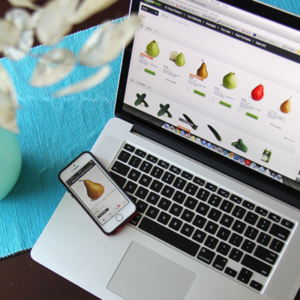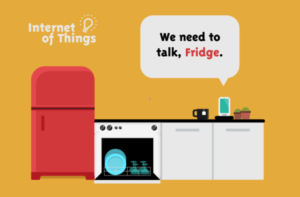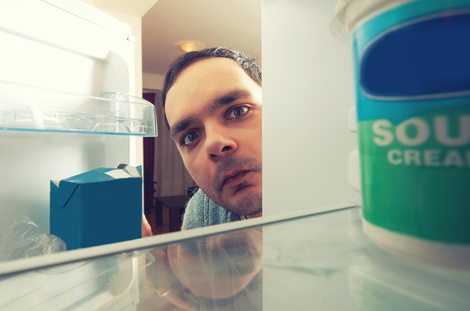Figures from analysts Mintel showed that contactless debit and credit cards are used by 39 per cent and 34 per cent of Britons this year respectively. Only 31 per cent of Britons used cheque books in the first three months of the year to April.
New research from e-commerce consultancy Salmon reveals that cashiers may go the way of the cheque book in the next two years with the rise of programmatic commerce.
Programmatic commerce involves internet-enabled devices making smart purchasing decisions based on owners’ predefined preferences.
For example, a coffee machine might re-order the owner’s favourite coffee when supplies run low with the shopper simply entering price limits, preferred brands and other options into the system on initial set-up.
Programmatic commerce represents the next era in digital shopping using connected devices, which has already been signalled with the UK launch of Amazon Dash.

Salmon’s research shows 57 per cent of UK consumers will be ready for automated purchasing by 2018, with 13 per cent of the surveyed 2,000 respondents announcing that they’re ready now.
The research suggests that shoppers recognise the great potential of smart technology for their retail experience.
Consumers already use digital channels – from online shopping to mobile – nine times a week on average, with over half citing the main advantage being convenience.
“The rise of digital has been the single greatest change in retail over the past decade. Consumers have wholeheartedly embraced online shopping services for the convenience, time-saving and enjoyment they can bring,” said Neil Stewart, CEO of Salmon.
“While we expected consumers to already appreciate the benefits of digital, we have been pleasantly surprised by how ready they are for automated shopping. Our research paints a picture of a sophisticated and engaged consumer, ready to take advantage of the impact of smart technology in their digital shopping.”
The smart technology needed for programmatic commerce is becoming more common in British homes.
One in three Brits either already use a form of smart tech in their home or plan to do so within the next 12 months. Importantly, 58 per cent of consumers are likely to opt for smart fridges if it would allow them to use automated shopping, with most seeing the potential to stock up on groceries, beauty, healthcare and personal hygiene products this way.
“Connected devices are growing at an incredible rate, with 26 billion expected to exist by 2020,” continued Neil Stewart.
“The possibilities that these devices can offer in retail are astounding, from fridges ordering weekly groceries to cars ordering replacement tyres when they are worn down.”
Mark Skilton, a professor of Practice at Warwick Business School and an expert on technology believes the maturity of the Internet of Things requires an evolution in consumer behaviour.

“It’s all about grabbing the attention of people. The Amazon Dash button is such a device to grab the moment: should you need to reorder items such as washing powder, food or other items you have ran out of, it’s quick and easy, one press to set up and go,” he added, acknowledging the technology’s step in the direction to automation when this will be ubiquitous.
“To that extent I see the Dash button as only a temporary solution, but nevertheless a key step on the road to the connected world it promises, and of course more revenue for the likes of Amazon. It will be interesting how the other major retailers react to this,” Skilton added.
“It is still the early days of what is called the ‘Internet of Things’, but it is going to be huge in the way everyday objects will become ‘intelligent’ and ‘Smart’ enabling interaction with people and between object to object ‘talking’ to one another to optimise various outcomes.”
According to Salmon’s Stewart, brands, retailers and manufacturers must prepare themselves for programmatic commerce, both through technology advances and through the partnerships to bring these services into British homes.
“Consumers will embrace the convenience of programmatic commerce, and those that offer it first will reap the advantages.”






